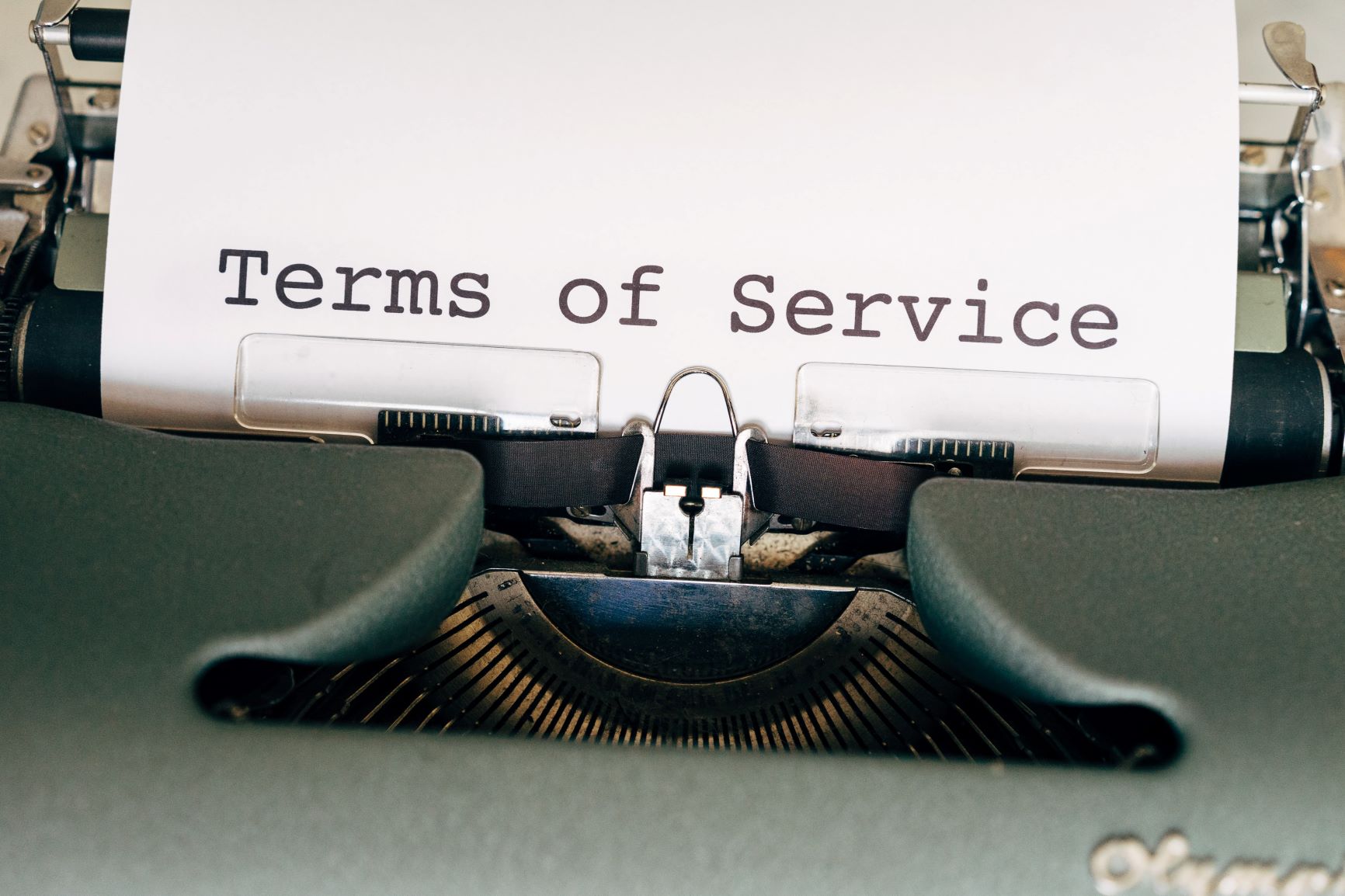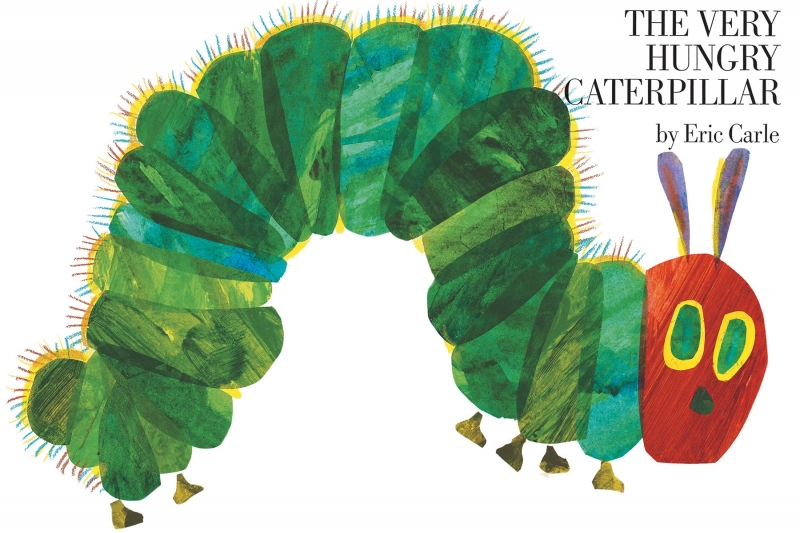
The judges are looking for easy-to-read legal documents | Photo by Markus Winkler on Unsplash
What’s the number one thing a reader of a legal document is looking for? We’d like to suggest that it’s clarity! Readers of any writing — including legal documents — are looking for a document they can read once, understand, and act on.
Read the full version of a definition of plain language by the International Plain Language Federation
The award for Best Plain Language Legal Document celebrates legal writing that gets its point across without that legal flavouring that we’ve seen so often. How often have you encountered words like these in a legal document — furthermore, notwithstanding, prior to, accordingly? And what about commence, expedite, or terminate?
Let’s see some legal documents that push the boundaries of ‘plain’
The winners of the Best Plain English Legal Document in 2018, Draper Cormack, pride themselves on communicating clearly and directly with their clients. And the judges agreed that they were doing a great job of clear communication with their terms and conditions. The judges said:
This document is written in a way that gives the intended audience a strong chance of understanding it at the first reading, and in the way the drafter wants them to. It’s clear, direct writing, using as few words as needed, and avoids being ambiguous, lengthy or technical writing and complex sentences.
Overall, it is a good example of what you can do with a legal document.
The other finalists, Infinite Possibilities and Hatch, also made clarity a key feature of their communication with their customers.
Check out a legal document with a difference in the client relationship agreement from Infinite Possibilities
And take a look at Hatch’s terms too. The judges said:
Overall this document shows what plain English can achieve in the law. The target audience is written to in a language it can understand and act upon with confidence. The flow of ideas is logical and the design is clear and concise. [The document’s audience] would easily and quickly grasp its implications.
What the judges are looking for
The judges are looking for the best example of a legal document written in plain language. You can enter a document used in legal contexts or for legal purposes. Examples include contracts, agreements, terms and conditions, notices, deeds, judgments, legal opinions, and so on. The document may cover a legally enforceable Act, process, obligation, or right.
Here are the judging criteria. And remember the judges will also be keen to know if you’ve evaluated your document in any way, such as carrying out document user-testing.
Purpose
The purpose of the document is clear at the start, and the content supports the purpose of the document.
Structure
The structure is clear and logical to the reader.
Headings and main messages
The headings are informative and clearly signpost the main messages.
Paragraphs
The paragraphs are mostly short and focused on one topic.
Sentences
The sentences are mostly short and straightforward.
Words
The words are precise and familiar. Technical terms are explained.
Layout and presentation
The layout helps the reader absorb the messages quickly and easily.
Watch videos from our judges of the legal category in our gallery:
More about the Best Plain Language Legal Document category
Anne-Marie Chisnall June 9th, 2021
Posted In: 2021 Plain English Awards, Communications, Industry awards, Legal writing, Plain English Awards
Tags: 2021 Plain English Awards, Best Legal Document, clear communication, clear thinking, clear writing, improved writing, Legal writing, legalese, writing for the public

The very hungry caterpillar, by Eric Carle | Photo by eric-carl.com
I don’t know about you, but I first learnt how to write professionally in an academic setting — the more information you can feed into someone’s brain, the better the result. While we might love to gorge ourselves on a treasure trove of knowledge, too much information can wear us out. Our brains have to work even harder to digest what’s in front of us, and sometimes all the ‘smart’ words don’t even make sense.
The Best Plain Language Sentence Transformation is one of my favourite categories in the Plain Language Awards. You get to see great before-and-after examples of unplain, jargon-heavy text transformed into beautifully clear sentences. But an added bonus for entrants is being validated in having permission to write using plain language.
Trim the fat, keep the flavour
The easiest way to think about the Best Plain Language Sentence Transformation category is through the lens of a classic childhood read. The Very Hungry Caterpillar by Eric Carle (rest in peace) is a children’s picture-book that tells the story of a caterpillar who becomes a butterfly.
The caterpillar hatches from its egg, and begins to eat more and more each day. At one point, it has a ridiculous feast and becomes ill from overeating. Having learnt its lesson, the following week it takes on a lean diet with a large green leaf, before spinning a cocoon to chill out and emerge as a beautiful butterfly.
The caterpillar represents all the words we want to write. We’ve hatched an idea and we want to spread our message. But we’ve got so many thoughts and ideas to add that we sometimes lose our direction. Our sentences become bloated and it’s exhausting to even look at our writing. What we’re left with is the Sunday evening special — what any food critic would describe as a hot mess.
And on another level, the caterpillar represents your audience — who you’re writing for. And the food it eats is all the words that you’re throwing at it. You wouldn’t take your vegetarian mates out to an all-you-can-eat Brazilian barbecue now, would you?
Five easy tricks for a word diet — thesauruses hate them!
So what’s the recipe for a great sentence? Here are five easy tricks to cook up a beautiful serving of alphabet soup.
- Keep sentences to an average of 15–20 words for print, or 12–15 words for online text.
- Use the active voice, rather than the passive voice.
- Ask a mate to read what you’ve written and see if it makes sense to them — bonus points if they’re your target audience.
- Be consistent in how you describe technical, complex terms.
- Write like a human and not like a robot.
Beauty is in the eye of the beholder. And for me, a crisp and clear sentence is the apple of my eye — a work of art that I appreciate more than anything else. So bring out the red pen, bin the jargon, and show the world all the beautiful butterflies you’ve created.
Enter the Best Plain Language Sentence Transformation category
Jonathan Tan May 31st, 2021
Posted In: 2021 Plain English Awards, Best Plain English Sentence, Plain English Awards
Tags: 2021 Plain English Awards, Best Plain English Sentence, Best Sentence, plain English, Plain English Awards, transformation

We celebrate the generous support of our friends | Photo by Michael Dziedzic on Unsplash
One of the goals behind the Awards is to create a fairer society through improving people’s access to important communications. We acknowledge that this is an ambitious goal, but it’s one that moves a step closer to reality with every bit of support we get.
Among our supporters are our judges, who are all expert plain language specialists from around the world. They seem to come back each year even keener to to help us out again!
Adding to this wonderful level of support, our sponsors are all shining examples from the community of individuals and organisations committed to doing good.
Taking care of our printing needs
For 7 years now, the Wellington branch of printing.com has been one of our loyal sponsors. We feel fortunate to have their support. As their commitment to the Awards, printing.com covers all our printing needs for the Plain English Awards.
‘We see the Awards as being extremely important for supporting the government and business sectors as they continuously improve the way they communicate with the general public of New Zealand,’ says Nathan Jennings, business development manager at printing.com.
Thank you printing.com for your ongoing support. We couldn’t do it without you and all our other friends!
Read about printing.com and our other sponsors
Become a sponsor
Melissa Wardell May 20th, 2021
Posted In: Communications, Judges, Sponsors, Sponsorship
Tags: 2021 Plain English Awards, Industry awards, judges, Social good, sponsors, Sponsorship
Media release: 7 May 2021
After holding off entries last year, the full Plain English Awards are back in 2021. The Awards will look a little different this year, with a virtual ceremony and some new ways for entrants to share their inspiring work in clear communication.
Fresh Awards with a new theme
This year’s theme for the Awards is Story. We’re inviting the public to share the stories behind their plain language projects in short videos. We’ll showcase these videos in a gallery to inspire and enlighten the wider public. The video gallery is open now.
‘A major goal for the Awards has always been to bring plain language into common use,’ says chair of the WriteMark Plain English Awards Trust, Gregory Fortuin. ‘We know that stories raise awareness and inspire action. The more visible the stories of our entrants, the more sparks of possibility and innovation will be lit.’
All the familiar categories are back
This year’s Awards will feature all categories, including the two People’s Choice categories for Best Communication and the infamous Brainstrain.
‘As we’ve seen in the events of 2020 and beyond, clear communication makes a real difference in people’s lives,’ Gregory says. ‘Here’s a chance to celebrate all the great work that people having been doing over the past couple of years.’
Important dates for the 2021 Awards
- 1 June: Entries open
- 31 July: Entries close
- 30 September: Finalists announced
- 14 October: Winners announced
Big thanks to our media partner, Newsroom
The goodwill and support of our sponsorship partners keeps the Plain English Awards ticking. We’re immensely grateful to New Zealand-based news and current affairs site, Newsroom.co.nz for believing in our cause and being our media partner.
ENDS
Get more information
www.plainlanguageawards.org.nz
Jonathan Tan, project manager, 2021 Plain English Awards | enquiries@plainlanguageawards.org.nz
OR
Gregory Fortuin, Chair, WriteMark Plain English Awards Trust | 021 465 254
Nicola Welby May 7th, 2021
Posted In: 2021 Plain English Awards, Communications, Media release, Plain English Awards, Story theme
Tags: 2021 Plain English Awards, Best communication, Best Plain English Communication, Brainstrain, clear communication, People's Choice, plain English, Plain English Awards, plain language, recognition, writing for the public

Are you the Champion we're looking for? Photo by Clark Tibbs on Unsplash
Are you one of our award-winning plain language Champions? After a break of almost 3 years, our premier Champion categories are back: Best Organisation and Best Individual or Team. The Award for Best Organisation is highly sought-after and you’ll join an elite band of past winners.
We know for sure that the judging team is looking forward to hearing about your plain language project. But how do you know whether the time is right to enter the Best Organisation category?
Here are five clues to help you decide if it’s your organisation’s time to shine. If any one of them is true, we recommend you enter!
1. Your organisation champions and celebrates clear communication
Clear communication is something your organisation values and rewards. Your leadership team walks the talk, promoting the benefits of clear communication throughout your organisation. You may even have gone the extra mile by working towards an external mark of quality like the WriteMark or WriteMark Plus.
Your internal documents, such as brand guidelines, policies, and newsletters, are written in plain language. Role descriptions emphasise the need to write clearly. Perhaps you even have formal KPIs for using plain language.
Let your industry peers know you’re a leader by entering the Champion category.
2. You’ve noticed better business results from clearer communication
You’ve got case studies or numbers that show improvement. Achieving a measurable return on your investment in business writing is evidence of Champion performance.
You recognise writing is more than an everyday activity in business — it can be a way to improve business success.
If you’ve cracked it, you deserve a medal!
3. You’ve had great feedback from customers about your communication style
Your customers value the way you communicate. Getting praise from customers for using plain language is praise indeed! People don’t offer praise lightly. They’re much more likely to complain about poor communication — or to say nothing at all.
Great feedback for your communication style shows you’re getting your message across in a way your customers appreciate.
We’d like to hear what brought about that success — and to tell the world about it!
4. You train your people in better business writing
Organisations that commit to a plain language culture offer their people resources and training. Writing in plain language takes skill and effort.
You train your staff to write clearly, which gives them a step up. They enjoy their writing more, and they write more efficiently.
Good on you for giving your people the tools they need to write well. That’s worth celebrating too!
5. Your organisation encourages peer review of print and online content
Peer review at key stages of a writing project is expected. People in your organisation seek out peer review as they can see the value in another person’s critique. Your peer review process uses a checklist or standard and is part of a defined process to achieve quality.
Reviewing and feedback can take place through user-testing too. Do you regularly seek feedback from real readers on your communications?
Good systems and processes are key to a Champion mindset. Enter the Awards and get some well-deserved external recognition for your work.
Preparing your Champion entry
Find out how to enter our Champion categories
Read the criteria for our Champion categories
Anne-Marie Chisnall May 5th, 2021
Posted In: 2021 Plain English Awards, Communications, Industry awards, Plain English Awards, Plain English Champion
Tags: 2021 Plain English Awards, Best Organisation, Champion, clear communication, clear writing, Industry awards, Plain English Awards, Plain English Champion

The Write team believes in the power of words for good. Photo by Jess O'Brien Photographer
Sister companies Write and WriteMark are the founding sponsors of the Plain English Awards — New Zealand’s celebration of clear communicators. With the Awards returning in 2021, both Write and WriteMark are renewing their support.
This year, Write has an extra-special reason to commit to the Awards. As Write has just become a certified B Corporation, CE Lynda Harris feels an even greater commitment to the Awards as yet another way of demonstrating impact in the world.
Lynda explains:
We believe that people have the ethical and democratic right to understand communications that are central to their lives — government forms, legal documents, financial applications and agreements, terms and conditions, and more.
Ultimately, we want people to be able to understand critical information easily, and to make key life decisions based on that information being as clear as possible.
Getting the plain language message out
The Awards celebrate the communicators who create clear, accessible documents and websites. And in doing so, the Awards help to share the message that we all benefit from plain language in so many ways.
Plain language enables us all to participate more easily in society and make important legal, financial, and health decisions based on better understanding. That’s got to be a good outcome!
Are you willing to join the call?
A plain language approach to communication means truly committing to putting customers and colleagues first — a culture-changing shift in how business and society operate. Our sponsors are joining the call for fairer, clearer communication from all sectors.
If you’re interested in supporting the 2021 Plain English Awards, please get in touch. We’d love to hear from you, and we’d love to have you on our team.
Meet our sponsors
Become a sponsor
Anne-Marie Chisnall April 7th, 2021
Posted In: 2021 Plain English Awards, Communications, Sponsorship
Tags: 2021 Plain English Awards, clear communication, Industry awards, sponsors, Write Limited, WriteMark

The beauty of helping anyone out is in the end result. Photo by Siora Photography on Unsplash
Remember the time you helped your cousin learn to ride a bike? Or made your mother breakfast in bed on Mother’s Day? Or picked your friend’s children up from school when your friend got caught in a meeting?
The beauty of helping anyone out is in the end result. It’s the look of exhilaration when you let the bike go and your cousin takes off on his own. The smile on your mother’s face and the appreciation she feels when you treat her. The relief you give your friend, who can finish the meeting he’s in without worrying about his children.
Sponsoring the Awards is like all of these examples. By supporting us to run the Plain English Awards, you’re helping to promote good. Just like the smile on your mother’s face at Mother’s Day, you’ll directly and indirectly be helping to make a difference. That smile will be the equivalent of a patient who understands their medical treatment for the first time. Or someone going through a personal emergency that understands his or her insurance cover immediately.
Sponsoring the Awards shows you support a fairer society
A plain language approach to communication is a radical commitment to putting customers and colleagues first — a culture-changing shift in how society operates. Our sponsors sit alongside us on the journey, adding a new voice to the chorus calling for fair and clear communication from private and public sector organisations. Our sponsors become part of our Awards team.
If you’re interested in supporting the 2021 Plain English Awards, please get in touch. We’d love to hear from you, and we’d love to work with you.
Please contact Melissa to find out about sponsor benefits at enquiries@plainlanguageawards.org.nz
Become a sponsor
Meet our sponsors
Melissa Wardell March 18th, 2021
Posted In: 2021 Plain English Awards, Communications, Plain English Awards, Sponsors, Sponsorship
Tags: 2021 Plain English Awards, appreciation, Awards team, clarity, clear communication, make a difference, sponsor, sponsor benefits, sponsoring, Sponsorship, support the Awards







